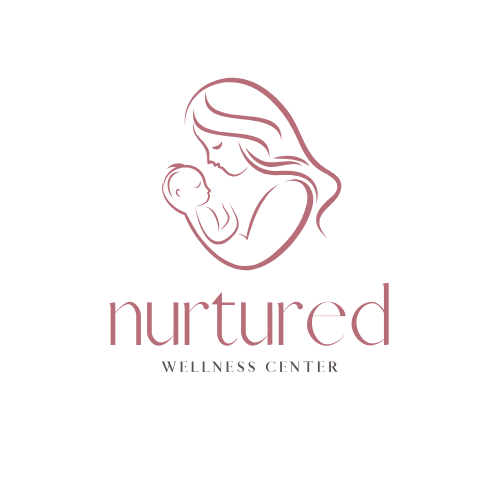The Lifeline of Love: The Importance of Breastfeeding
When it comes to nurturing a newborn, few things can compare to the incredible bond that forms through breastfeeding. Beyond the emotional connection, breastfeeding offers a myriad of benefits that contribute to the health and well-being of both the baby and the mother. In this blog post, we will explore the significance of breastfeeding and why it remains a crucial aspect of early childhood development.
**1. Optimal Nutrition:**
Breast milk is often referred to as "liquid gold" for good reason. It is a powerhouse of essential nutrients, perfectly tailored to meet the needs of a growing infant. Breast milk provides the ideal balance of proteins, fats, vitamins, and minerals, ensuring the baby receives the best possible start in life. Additionally, it contains antibodies that help protect the baby from infections and diseases, offering a level of immunity that cannot be replicated by formula.
**2. Developmental Milestones:**
The nutrients in breast milk play a pivotal role in an infant's cognitive and physical development. Long-chain polyunsaturated fatty acids found in breast milk, like DHA, are essential for brain development and have been linked to higher intelligence scores in children. Furthermore, the act of breastfeeding itself helps develop the baby's oral muscles, promoting better speech and oral development.
**3. Enhanced Bonding:**
Breastfeeding creates an intimate and nurturing connection between the mother and child. It's a moment of tenderness and closeness that extends beyond the physiological benefits. This skin-to-skin contact releases oxytocin, often referred to as the "love hormone," which helps strengthen the emotional bond between the two. This bond has lasting effects on the child's emotional well-being and overall sense of security.
**4. Reduced Risk of Infections:**
Breast milk contains antibodies and immunoglobulins that protect the baby from various infections and diseases, including respiratory infections, gastrointestinal illnesses, and ear infections. The protective effects extend well into infancy, giving the baby's immune system a boost when it's needed most.
**5. Lower Risk of Allergies and Asthma:**
Breastfeeding has been associated with a reduced risk of allergies and asthma in children. The unique composition of breast milk helps develop the infant's immune system, making them less susceptible to allergic reactions and respiratory issues. This protection can extend into adulthood, benefiting the child's long-term health.
**6. Better Digestibility:**
Breast milk is easier for a baby's developing digestive system to handle compared to formula. It is gentler on the stomach, reducing the likelihood of colic, constipation, and other gastrointestinal issues. This means less discomfort for the baby and less stress for the parents.
**7. Promotes Healthy Weight:**
Breastfed babies tend to have a better chance of maintaining a healthy weight throughout childhood and into adulthood. The reasons behind this are multifaceted. Breast milk helps regulate the baby's appetite, and the act of breastfeeding itself can teach them self-control, which can contribute to healthier eating habits later in life.
**8. Environmental Benefits:**
Breastfeeding is not only beneficial for the baby and mother but also for the environment. Unlike formula production, which requires resources and generates waste, breastfeeding has a minimal ecological footprint. It is a sustainable and eco-friendly way to nourish a child.
**9. Postpartum Benefits for Mothers:**
Breastfeeding offers a range of health benefits for mothers as well. It aids in uterine contraction, helping the mother's body return to its pre-pregnancy state more rapidly. Additionally, it can reduce the risk of postpartum depression and help with weight loss. The emotional bond formed during breastfeeding can also provide a sense of accomplishment and joy for mothers.
**10. Cost-Effective:**
From a practical standpoint, breastfeeding is cost-effective. Unlike formula, which can be expensive, breast milk is readily available and free. This can be a significant relief for parents who are on a tight budget, and it also makes breastfeeding accessible to all mothers.
breastfeeding is more than just a method of nourishing an infant; it's a beautiful and holistic experience that benefits both the baby and mother in countless ways. The power of breast milk, with its optimal nutrition, immunity-boosting properties, and emotional bonding capabilities, cannot be overstated. It contributes to the overall health and well-being of the child, while also offering a host of postpartum benefits for the mother. Moreover, breastfeeding is a sustainable and cost-effective choice that aligns with the principles of environmental responsibility.
While it's essential to acknowledge that breastfeeding might not be feasible for every mother due to various factors, the significance of promoting breastfeeding and providing support to those who choose it cannot be overstated. Through education, awareness, and encouragement, we can ensure that more mothers and infants enjoy the numerous advantages that breastfeeding offers. It's a lifeline of love, a source of nutrition, and a powerful bond that shapes the early days of a child's life, leaving a lasting impact on their journey to adulthood.


